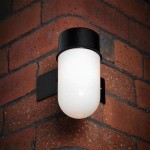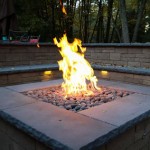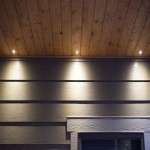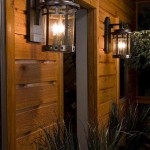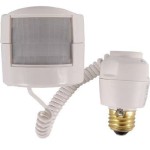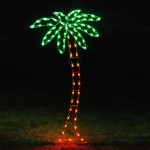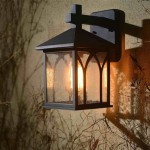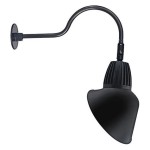Essential Aspects of Outdoor Lighting Setup
Outdoor lighting plays a crucial role in enhancing the safety, aesthetics, and functionality of your outdoor spaces. Whether you're illuminating pathways, highlighting architectural features, or creating a cozy ambiance, it's essential to approach your lighting setup strategically to achieve optimal results.
1. Determine Your Lighting Goals
Before embarking on your lighting journey, clearly define the purposes of your outdoor lighting. Do you aim to improve safety by illuminating dark areas, enhance the aesthetics of your home and garden, or create a specific mood or atmosphere? Understanding your goals will guide your subsequent decisions.
2. Plan the Layout and Placement
Once you've established your objectives, plan the layout and placement of your light fixtures. Consider the boundaries of your outdoor space, the areas that require illumination, and the positions that will minimize glare and shadows. Create a diagram or use a landscape design software to visualize your lighting scheme.
3. Choose the Right Fixture Types
The type of fixtures you select will depend on the desired effect and the specific areas you're illuminating. Common fixture types include:
- Path lights: Discreet lights designed to illuminate pathways and enhance safety.
- Spotlights: Adjustable lights that highlight architectural features, sculptures, or other focal points.
- Floodlights: Wide-angle lights that provide a general illumination for larger areas, such as driveways or patios.
- Bollards: Decorative and functional lights that delineate pathways and prevent tripping hazards.
4. Consider Light Source and Color Temperature
Outdoor lighting offers various light source options, including incandescent, fluorescent, HID, and LED bulbs. LED bulbs are energy-efficient and durable, offering a wide range of color temperatures. Choose a color temperature that complements the aesthetic of your home and garden. Warm tones create a cozy ambiance, while cool tones enhance clarity and visibility.
5. Pay Attention to Wiring and Installation
Proper wiring and installation are crucial for the safety and longevity of your outdoor lighting system. Hire a qualified electrician to ensure all electrical work is performed according to code. Use weather-resistant wiring and fixtures to withstand the elements. Protect connections with waterproof enclosures and consider using a transformer to reduce voltage for safety.
6. Add Control and Automation
Incorporate control features to enhance the functionality and convenience of your outdoor lighting. Consider motion sensors that automatically activate lights when movement is detected, saving energy and enhancing security. Additionally, smart lighting systems allow remote control and scheduling, enabling you to adjust your lighting from anywhere.
7. Focus on Aesthetics and Ambiance
While safety and functionality are paramount, don't overlook the aesthetic value of your outdoor lighting. The fixtures themselves can become decorative elements, complementing your home's architectural style. Combine different light sources, colors, and textures to create a harmonious and inviting ambiance in your outdoor spaces.
By following these essential aspects, you can create an outdoor lighting setup that meets your specific needs, enhances safety, and transforms your outdoor spaces into a beautiful and functional extension of your home.
28 Backyard Lighting Ideas How To Hang Outdoor String Lights

Light Backyard Outdoor Lighting Installation Ashburn Va
Indoor Outdoor Lighting Setups Simple Diagrams For Learning Photography

Outdoor Lighting With Silk Modifier Setups Photo Setup

How To Guide Landscape Lighting Installation Flip The Switch

How To Install Your Own Outdoor Backyard Lighting My 100 Year Old Home

Awesome Bistro String Lighting Concepts In Orange County Na Hills Ca Illuminated Inc

Allison Shelby Lighting Work Setup Dramatic Photography Photo Light

Outdoor Event Lighting Mike S Landscape

Jacksonville Outdoor Lighting Winter Installation
